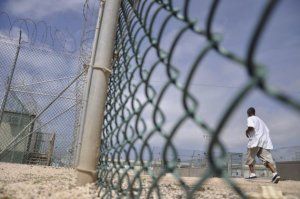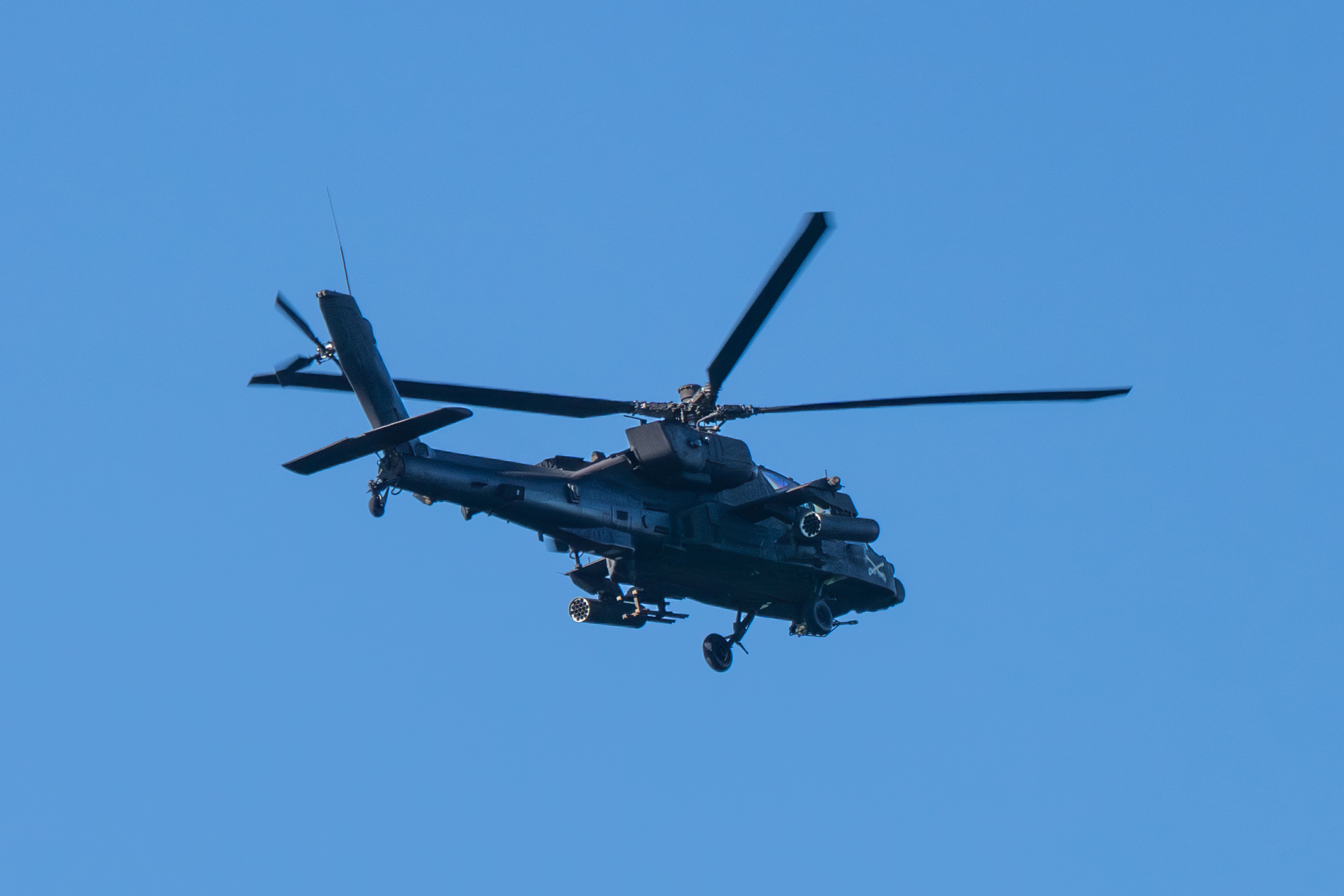
Two months after a judge ordered the Obama administration to release 32 classified videos of Guantanamo Bay prisoner Abu Wa'el Dhiab being force-fed in the midst of a hunger strike, the U.S. Department of Justice (DoJ) indicated on Tuesday that it would appeal. In its court filing, the DoJ argued that "the balance of harms and the public interest heavily favor extending the stay [of the tapes' release]."
Dhiab, 43, was sent to Guantanamo Bay in 2002 after he was turned over to the United States by Pakistani police. Though he was cleared for release in 2009, he has been in the prison for more than a decade without charge or a trial. Dhiab and his lawyers have spent the last seven months fighting for the release of the videos.
The DoJ's filing cited the concerns of high-ranking military officials like Rear Adm. Kyle J. Cozad, commander of Joint Task Force-Guantanamo (JTF-GTMO), who said releasing the tapes "significantly jeopardizes the ability of JTF-GTMO to maintain a safe and secure detention facility."
The filing also included a comment from Rear Adm. Sinclair M. Harris, vice director of Operations for the Joint Chiefs of Staff, who said that publicly releasing the videos "could reasonably be expected to seriously harm national security, to include our defense against transnational terrorism by: (a) endangering the lives and physical safety of U.S. personnel … (b) adversely affecting security conditions in Afghanistan and Iraq and (c) aiding in the recruitment and financing of extremists and insurgent groups."
"Which really should come tops in this case?" Cori Crider, Dhiab's attorney and a director at Reprieve, an international NGO with offices in the U.K and New York, asked Newsweek somewhat rhetorically. "The government's right to claim that something is a national security secret ... or the First Amendment?"
"By [the government's] logic, should the My Lai photographs in Vietnam have been suppressed? Some people were upset about them," she added. "What about the footage of the Rodney King beating in the 1990s? What about the Abu Ghraib photographs? All of those things upset and angered some people."
In the affidavit from which the DoJ extracted Harris' comment, he also said, "While the videos at issue in this litigation do not in my opinion depict any improper treatment of the detainees, but rather the lawful, humane and appropriate interaction between guards and detainees, persons and entities hostile to the United States and its detention of enemy belligerents at Guantánamo Bay are likely to think otherwise."
Harris went on to compare the damage the tapes could do with video released in 2012 of U.S. Marines urinating on the dead bodies of alleged Taliban members, which was subsequently used by the Taliban as a recruitment tool. He also presents the speech given by journalist Steven Sotloff in the video of his beheading by the Islamic State, the group formerly known as ISIS, in which he mentions he is paying the price for Obama's failure to close Guantanamo as evidence of the potential fallout.
"To say 'everything in the tapes is humane and uncontroversial and I think we're doing a stand up job down there and nobody needs to worry' but at the same time, 'if other people see it, heads are going to roll'... I just don't see how a human being can hold those two positions and expect not to be laughed at," said Crider.
In the affidavit from which Cozad's comment was extracted, he contends that the videos serve as training for guards, much like "an NFL team watching video of the previous week's football game to determine what plays worked well, what they did wrong, and what they could do better during the next game." But since the U.S. District Court judge in Washington ordered the tapes' release, authorities have stopped recording the sessions. Crider argues that putting a halt to filming shows "exactly how high the public interest in the material should be."
"What is important to me," she said, "is that we have an honest conversation about what is happening at Guantanamo in 2014. The tapes are one way of doing that because they peel away all claims and counterclaims and what is left is the truth."
Correction: This article originally incorrectly stated that Reprieve is a U.K.-based human rights charity. Reprieve is an international NGO with offices in the U.K and New York.
Uncommon Knowledge
Newsweek is committed to challenging conventional wisdom and finding connections in the search for common ground.
Newsweek is committed to challenging conventional wisdom and finding connections in the search for common ground.
About the writer
Lauren is a reporter covering technology, national security and foreign affairs. She has previously worked on award winning teams at ... Read more
To read how Newsweek uses AI as a newsroom tool, Click here.






